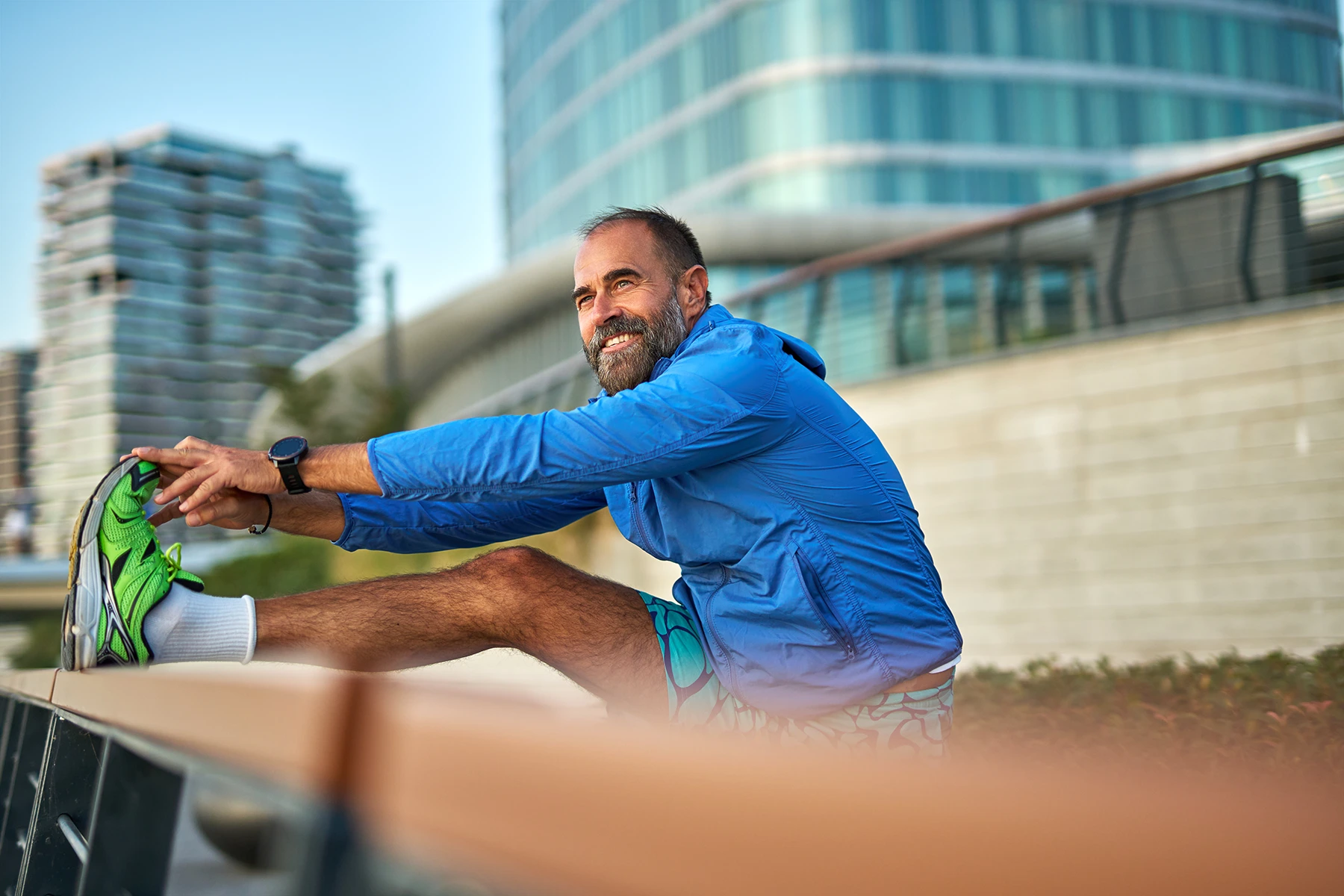How Does Your Physical Health Impact Your Mental Health?

It’s well-established. Regular exercise and good fitness are critical for preserving your physical health as you age. According to the American Academy of Orthopaedic Surgeons (AAOS), regular exercise increases blood flow, strengthens muscles, helps you lose weight, and improves your sleep.
And — it can help you live longer. One of the most notable recent studies was published by the European Society of Cardiology in 2024. They studied the effects of physical activity and fitness level on 5,482 men aged 60. They found that increased physical activity increased lifespan by 1.89 years for intermediate activity and 2.25 years for high activity. The results related to fitness level were even greater. Men with an intermediate fitness level lived 2.84 years longer than those with low fitness, and men with a high fitness level lived 3.79 years longer.
Exercise and your mental health
Other benefits of regular exercise are more closely related to mental health. In fact, the more researchers have investigated the benefits of regular exercise, the clearer it seems that exercise benefits the mind as well as the body.
“A lot of data suggests that exercise is great for preventing and treating mental illness, but it also seems to be good for brain health in general,” says Elizabeth A. Crocco, M.D., medical director of the University of Miami Memory Disorder Clinic’s Center for Cognitive Neuroscience and Aging.
“It appears to be a major factor when it comes to slowing the progression of degenerative diseases like Alzheimer’s, for example. We know that cardiovascular activity is great for heart health, but now it seems protective for brain health, as well.”
Even people with severe depression can get a handle on their problems with regular exercise. In 2021, the John W. Brick Mental Health Foundation released a comprehensive report, Move Your Mental Health, that showed the impact of regular physical activity on mental health. The report examined the results of more than 1,000 studies on the topic conducted over the last 30 years.
They found that scientific evidence overwhelmingly supports the theory that exercise improves mental health. Out of 1,158 studies, 89% of them found a positive association between exercise and mental health. Some of the benefits included lower rates of depression, anxiety and stress, as well as improved well-being, mood, quality of life and general mental health.
One way that exercise seems to support mental health is by making you more resilient in the face of life’s challenges. One interesting study on this topic was conducted in the United Kingdom during the 2020 COVID-19 pandemic. In a study of 85 people, the researchers found that their resilience in the face of life’s challenges increased along with exercise intensity. So, the more intensely a person exercised, the more they were able to take on life’s challenges and stressors.
What type of exercise will help?
Yoga and tai chi have shown specific benefits for people who struggle with anxiety. But really, says Dr. Crocco, any regular physical activity is beneficial for both your physical and mental health.
“There are a few key tenets that I tell my older patients when it comes to exercise,” she says. “First, you’re never too old to start. Second, no amount of physical activity is too small. Third, there’s also no ceiling. You can keep going as long as you don’t hurt yourself.”
For many people, even something as simple as walking 15 to 20 minutes a day makes a big difference. For those who want to incorporate regular strength training into their routine to keep their body strong as they age, she recommends starting with a personal trainer if you’re unfamiliar with strength training.
Written by Wyatt Myers. Medically reviewed by Elizabeth A. Crocco, M.D..
Tags: Benefits of physical activity, Dr. Elizabeth Crocco, Exercise and resilience, Mental health improvement techniques, Mind-body connection
